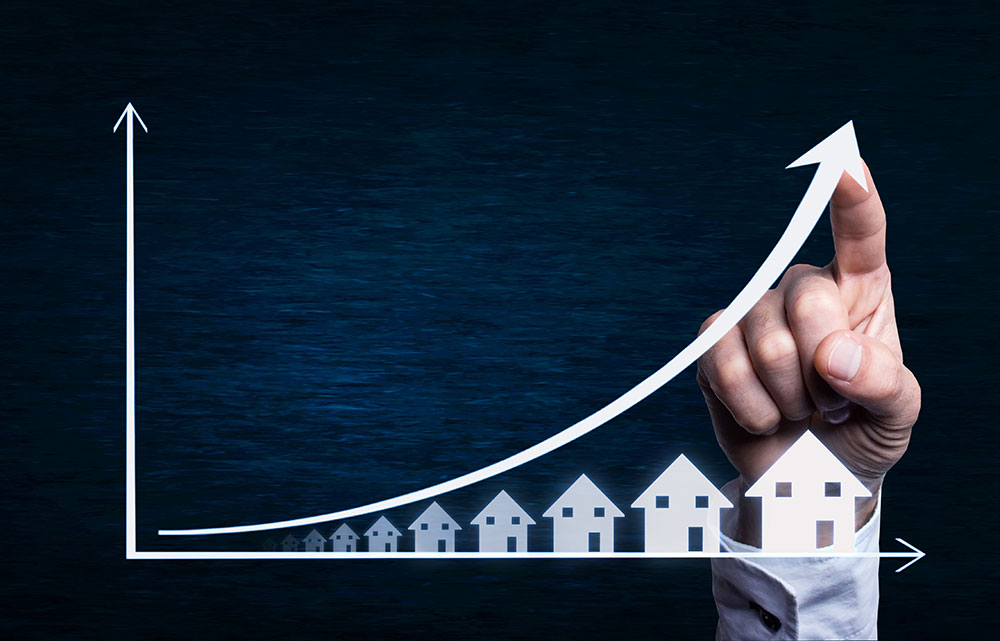Interest rates are the primary tool used by the Federal Reserve to manage the American economy. Low interest rates stimulate economic growth, while higher interest rates slow inflation. Interest rates are also critical to the real estate market, where changes to the cost of borrowing can heat up and cool down real estate sales.
High Interest Rates Make Real Estate Less Affordable
As the prime interest rate increases, the interest rates on mortgage loans also rise. As the cost of mortgage interest goes up, home buyers have trouble affording the more expensive homes. Increases in interest rates cause home sale volume to decline.
Let’s say a family can afford a home payment of $2,000 per month. At a 3% mortgage interest rate, the family can purchase a $312K house. If the average price of a home in a certain town is $300K, the above family should have a lot of houses to choose from. It will be a “seller’s market” with multiple buyers making bids on the same house. To out-compete other buyers, it’s likely this family will make an offer that is $12K above the $300K listing price.
However, if mortgage rates increase to a 5% interest rate, suddenly this family can only afford a $254K house. They will now struggle to find an affordable home in a town where the average house price is $300K. These buyers may look in other cities, or they may simply stay in their current home and hope for a better opportunity in the future. There will now be a “buyer’s market” where sellers struggle to find buyers that can afford their prices, and buyers with deep pockets can make bids below the listing price.
High Interest Rates Slow New Construction
New home construction is important as it increases the supply of houses on the market and the sale of newly constructed homes represents a large percentage of the homes sold each year. However, building new homes is an expensive and risky undertaking for a developer, which makes new home construction sensitive to economic changes. As interest rates and costs of materials increase, developers build fewer new homes, further slowing sales on the market. Developers may also have to reduce the price of recently-built houses to secure a buyer.
In a Bad Economy, Real Estate is Still a Good Investment
Despite the negative impacts rising interest rates have on the housing market, real estate is still a good investment choice during economic downturns, and housing prices are forecasted to continue appreciating. While we may not see 20% annual increases like occurred in 2021, prices are still expected to see an increase above the 45-year average of 5.1%.
Investors who can manage the higher cost of mortgages should find a lot of good deals on the market and a handsome return when the economy inevitably picks up again.





